Inside India’s first hospital clinic exclusively for trans people
Members of India’s sizeable trans community face abuse, heckles and stares and this often doesn’t stop when they walk into most doctors’ clinics. But there is one major public hospital in Delhi that is trying to tackle the stigma, as Namita Singh reports...

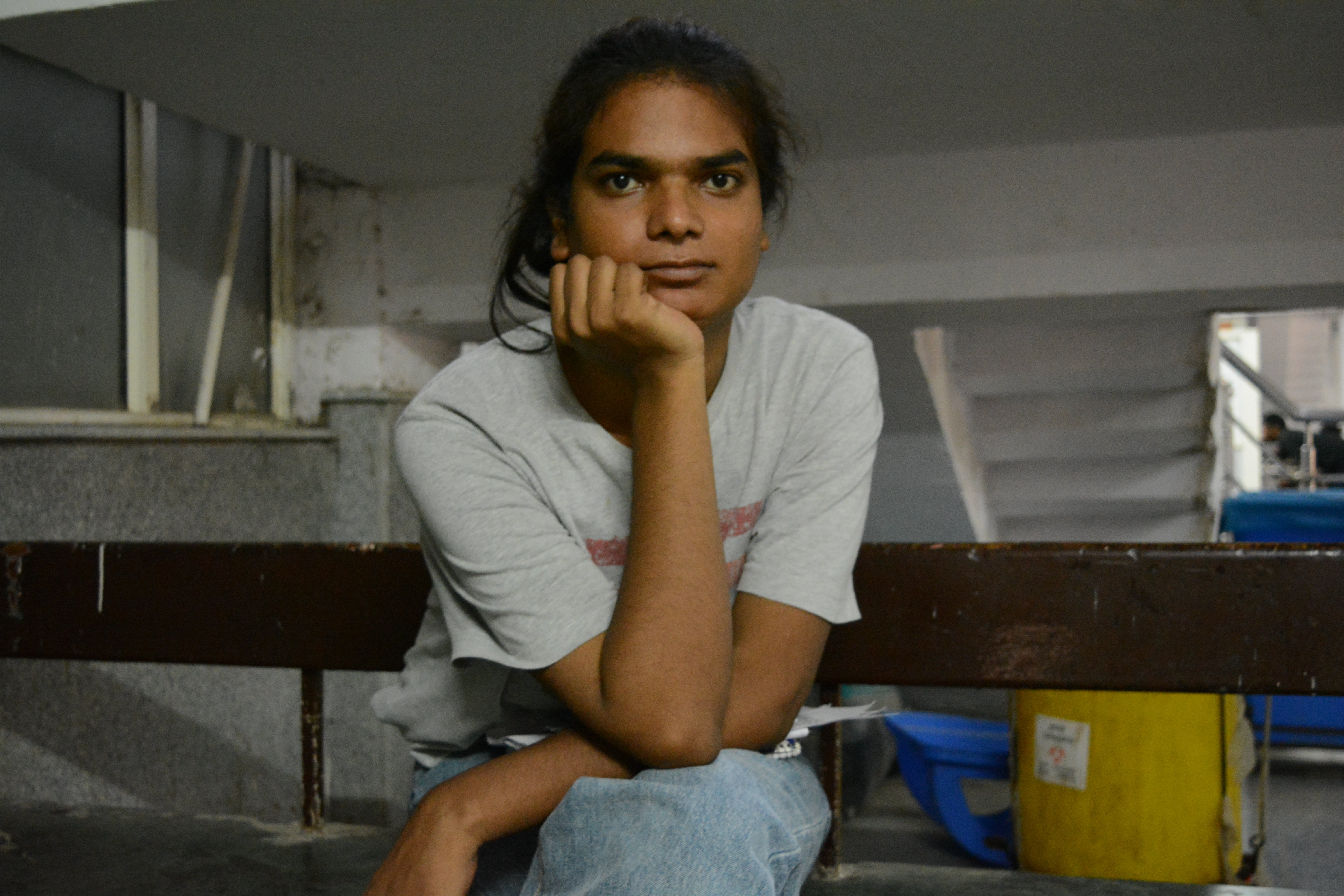
Ruchi Dixit is standing in line among some of the first patients to be treated at a new hospital clinic in India dedicated exclusively to transgender people, and says that for the first time in her life she has not been heckled as she waits to see a doctor.
For her and other members of India’s large trans population, the new clinic at Ram Manohar Lohia Hospital in Delhi represents a significant milestone. Despite India’s long history of recognising the third gender dating back thousands of years, this is the first specialised facility for transgender patients in the country.
Dixit says the difference can be felt from the moment she arrives at the hospital – gone are the long stares from fellow patients, reception staff and even doctors that she is otherwise used to enduring when visiting other clinics.
“The first big thing is that I did not have to slog around trying to figure whether to go in the queue for male or female,” says the 23-year-old rights activist. She says that knowing which queue to wait in – and being harassed whichever one she chose – was one of the worst things about visiting the doctor as a trans person.
“With the opening of the OPD (Outpatient Department), one of the biggest sources of stigma and discrimination has ended,” she says.
In India, while the majority of the middle class turn to private hospitals for quality healthcare, many others depend on the increasingly over-burdened government facilities for free or affordable treatment.
Dixit says poor sensitisation among doctors often makes it difficult for her to access government healthcare services. Private hospitals typically offer a higher degree of confidentiality, but it is not something she can regularly afford.
“Not all of us come from a well-off family or earn enough on a monthly basis to pay the medical bills that come whilst we are seeking treatment,” she says. “We need a government hospital. When it is accessible to others in the country, then [why not us?]. We are also only humans.”
The new clinic, which was inaugurated on prime minister Narendra Modi’s birthday on 17 September this year, offers weekly consultations to trans patients for two hours every Friday. The effort to start an outpatient department for transgender patients began in March, says Anamika, an activist working with the NGO Sewa Bharti who declined to give her surname.
“We have been meeting authorities demanding the OPD for some time. We were thinking of setting up medical camps for transgender patients and were having discussions on several fronts, in terms of ensuring accessible healthcare services for them,” she says.
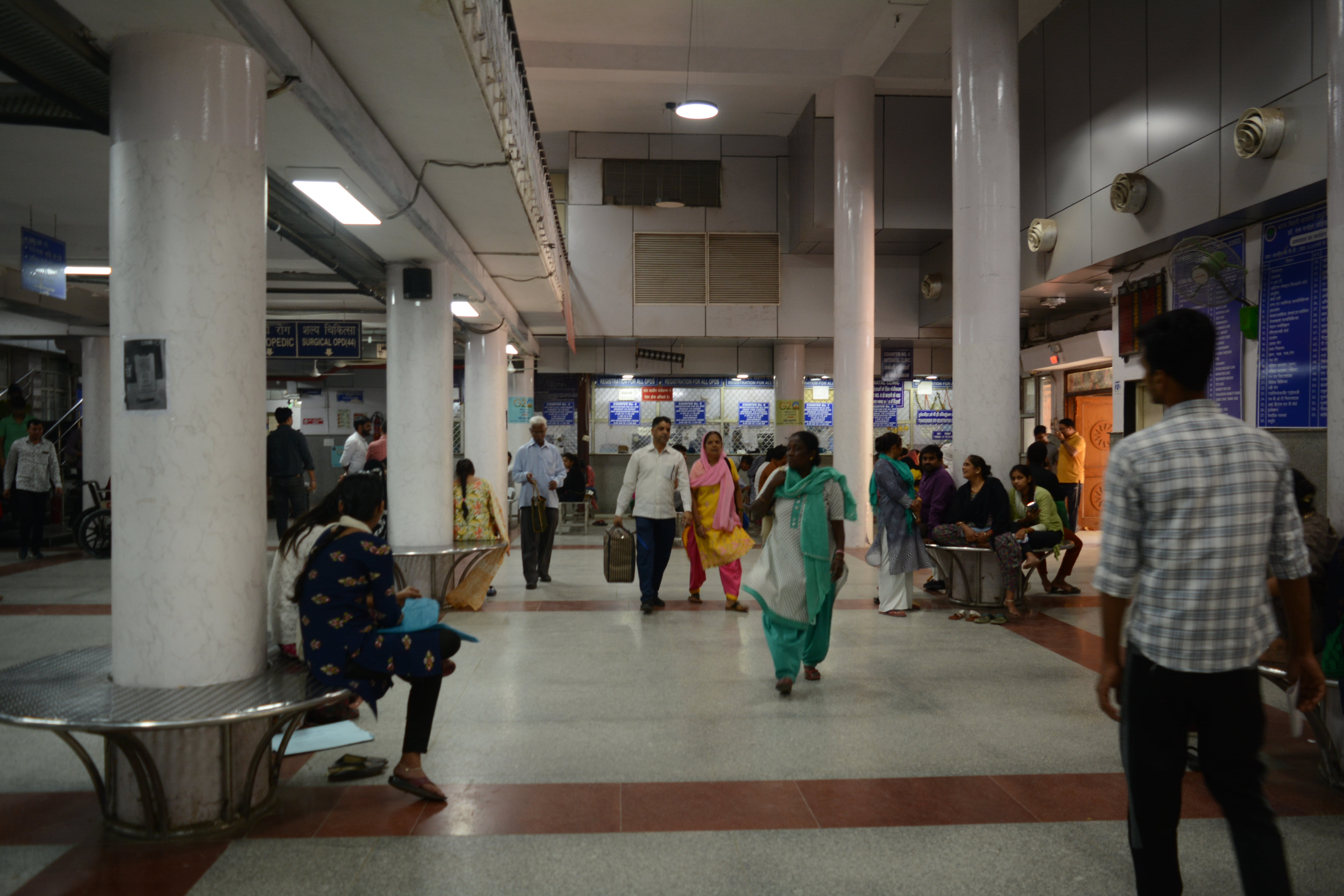
At the time of India’s last census there were 488,000 people who identified as belonging to a transgender community in the country. Yet of these, only a handful enjoy regular employment. Historically marginalised and discriminated against, 96 per cent of them are denied jobs and turn to sex work to survive. They also earn through transitional work such as begging, blessing new-born babies, or dancing in ceremonies, according to a 2018 survey conducted by the National Human Rights Commission.
Dixit’s story is no different.
She had to drop out of school due to relentless bullying and was subsequently disowned by her birth family.
“My grandmother got my admission into a boys’ school because I was assigned male gender at the time of birth. But boys used to harass me a lot. I faced a lot of stigma and discrimination,” she shares.
“In 2010, when I participated in a dance competition, that is when boys took note of my so-called effeminate traits. They started calling me abusive slurs.
“They made dirty gestures and there were instances when even rape attempts were made,” shares Dixit.
The same year, her family stopped supporting her due to social ostracism they faced and at the age of 10, Dixit was left to fend for herself. “They told me to go away saying, ‘we cannot live with you anymore’.”
“I started begging in trains,” she says, where “the men used to harass me”. She later took up sex work to survive, she says.
Dixit reunited with her family six years later but only after she underwent her transition. It coincidently overlapped with her father’s illness, making her the sole breadwinner in a family of five. The lack of financial safety or work opportunities had made it impossible for her to access reasonable healthcare facilities required for her gender affirming surgery.
Her surgery was done by a non-doctor, in a dangerous environment and without any medication or anesthesia, she recalls.
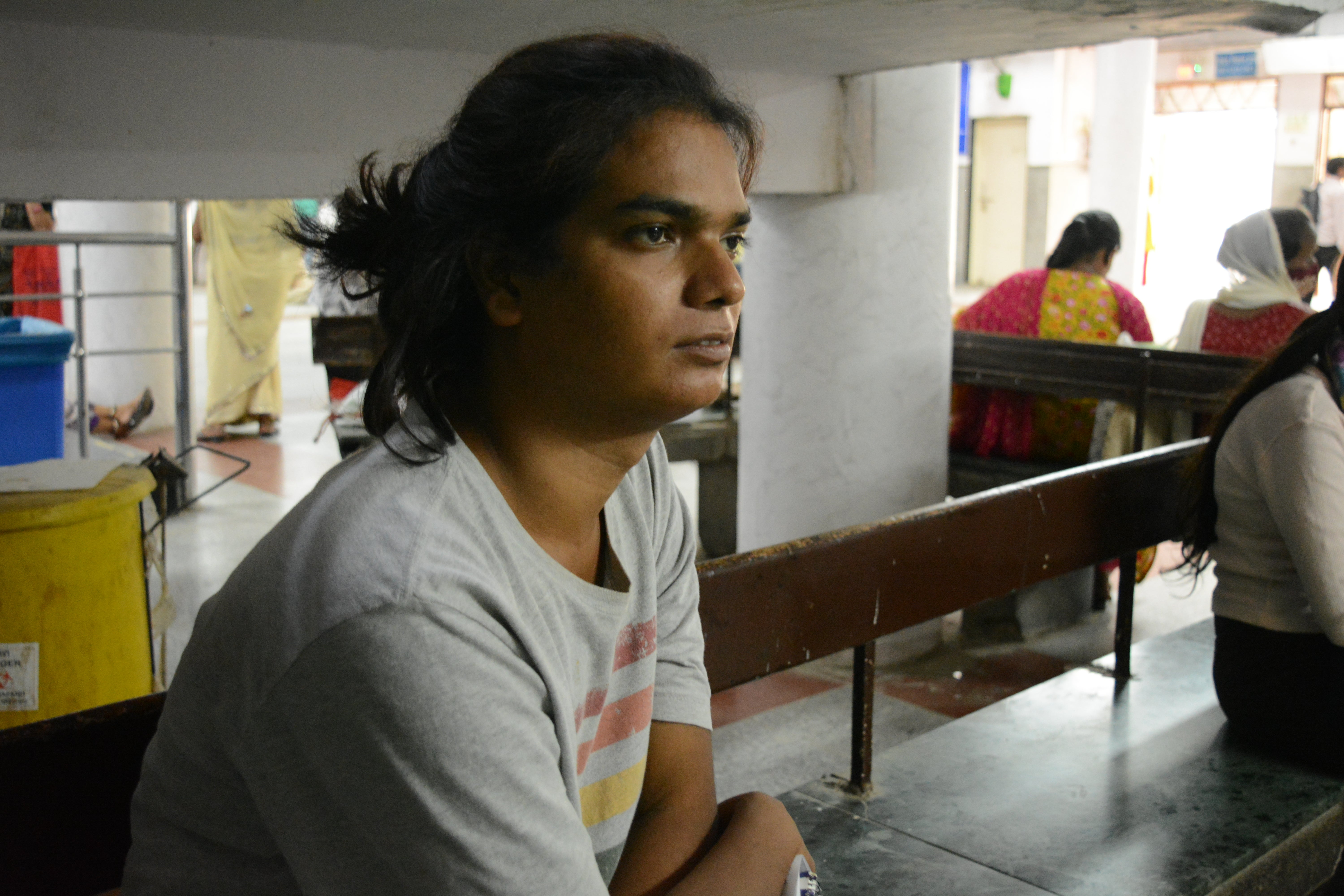
“I got it done, when I was 16, through a midwife.The so-called midwife was not a trained healthcare professional by any stretch, nor was she a doctor. The procedure that was done was entirely unsafe and was done at someone’s home (sic).
“There were no measures that were taken to ensure that it was not painful or anything. I was just bedridden for over a month, writhing in pain.”
Offering access to free healthcare services is an important measure of inclusivity, other trans people at the clinic say.
“It is important for us because we are trapped in the wrong body,” says 23-year-old Veronica Batra, who identifies as a trans woman. Gender-affirming surgeries cost anywhere between £1,900 to £ 9,800 in India.
However, the OPD falls short on several counts, she says. “Doctors are generally sensitised but they don’t have any protocols right now on how to proceed,” says Batra.
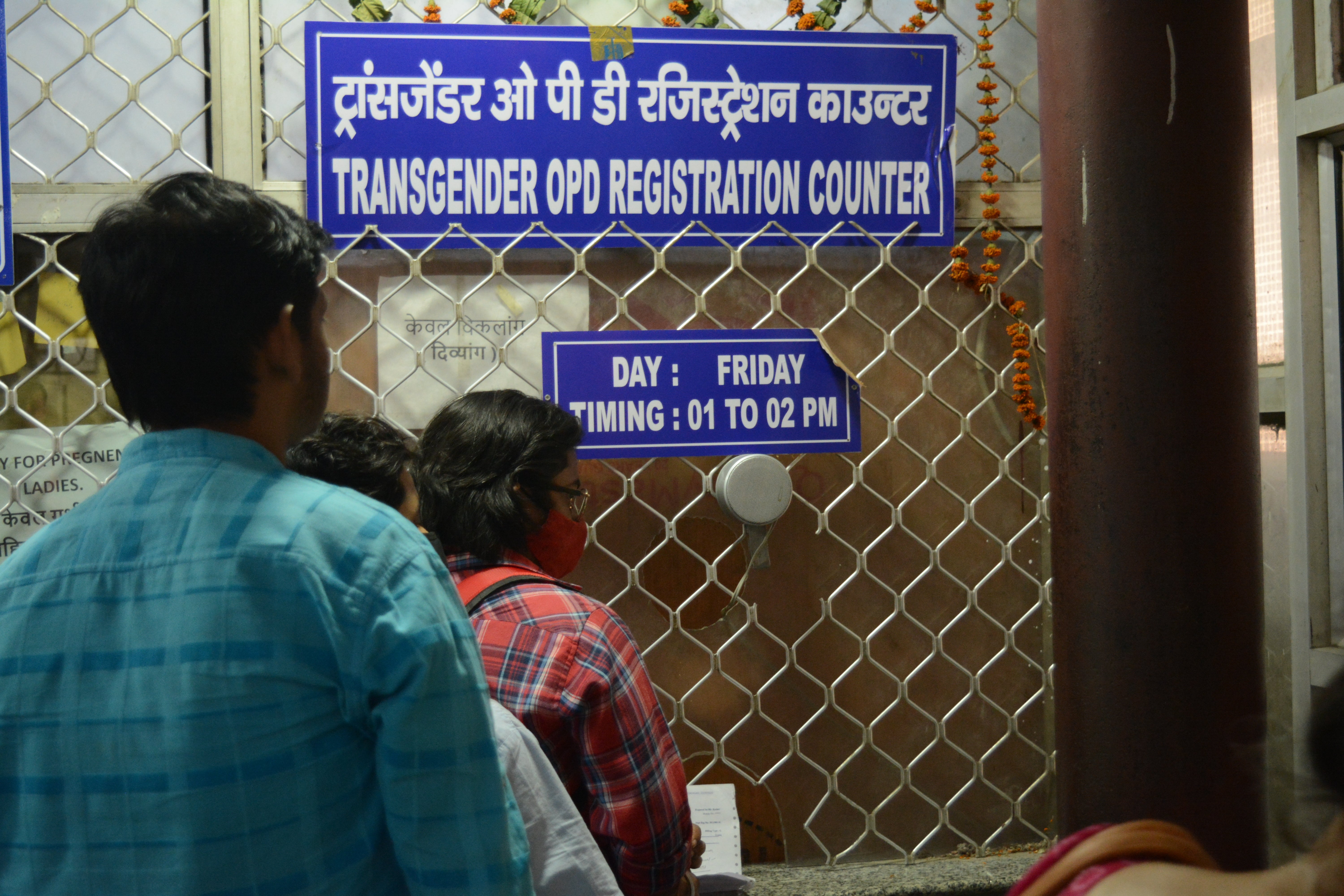
“I went to the surgeon [for inquiries regarding breast implant], she told [me] ‘you source the silicon and we will do your surgery’ [and] that the [silicon] is expensive and government cannot afford it.
“But why? We are paying taxes as well,” she says.
Asked about Batra's comments, medical superintendent Dr Ajay Shukla says cosmetic procedures are not a part of the facilities available at RML Hospital for people of any gender. "This includes breast implants as well as other cosmetic surgeries," he said.
Trans patients also complained about the absence of a laser machine at the facility, used for hair removal and reducing growth.
“Actually in terms of facilities, most patients need laser treatment on priority,” says Anamika. “But they don’t have it as yet. And it has made them a bit angry.”
Defending the limited facilities available to those visiting the new clinic, Dr Sheetal, a senior resident at the dermatology department, tells The Independent that the streamlining of things “does take time”.
“See, laser hair reduction has its own pros and cons. According to my knowledge and experience, once you start hormone replacement therapy… it takes care of the hair automatically.
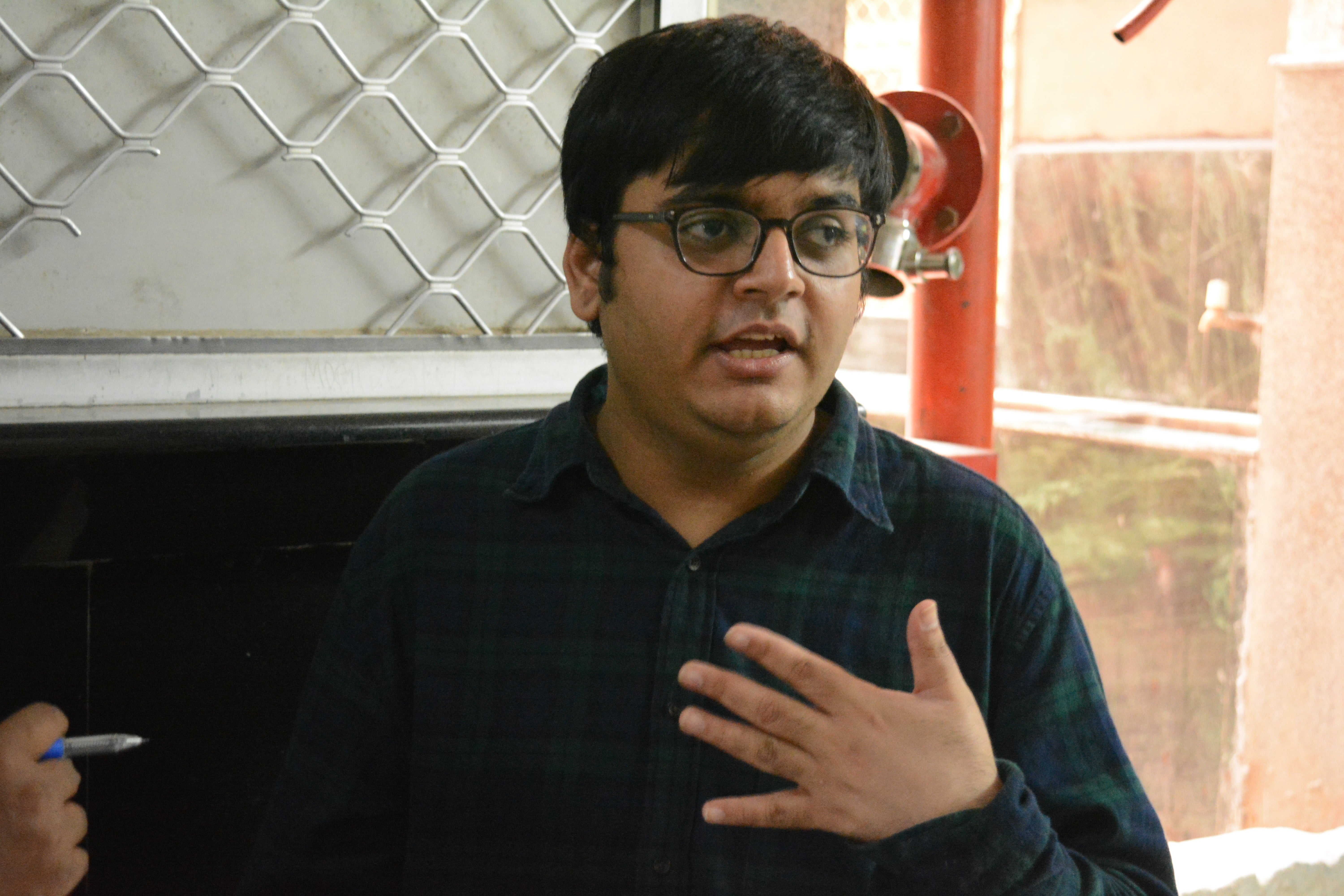
“And apart from [that] yes, I agree, we are not ready with laser hair machine, but it will come in [the] subsequent period of time. Until that we are giving topical treatments in place of that,” she says.
Batra is also exasperated by the lack of sensitisation among the ground staff.
“Earlier one person came to the hospital and [the staff] said ‘people who clap are here’,” in an apparent reference to a trait common to a section of transpeople which is often used by others to demean and deride them.
“My mother came as an ally earlier. She was very disturbed. That is why I didn’t let her come here again.”
“We were given training, we were called and we had a meeting of all the people together of all the specialists along with the head of the department,” Dr Sheetal says.
She adds that the hospital is open to feedback from the patients.
“We are happy to address [the problems] and I hope that there will be much better facilities available for them.”






Join our commenting forum
Join thought-provoking conversations, follow other Independent readers and see their replies
Comments